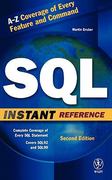UNIX Regular expressions are a powerful tool for text processing and pattern matching. They provide a concise way to search, match, and manipulate text data
UNIX
Regular expressions are a powerful tool for text processing and pattern matching. They provide a concise way to search, match, and manipulate text data in a variety of applications. In regular expressions, a pattern is defined using a specific syntax and is used to match against text data. The first part of using regular expressions is learning the syntax and understanding the different features and options that can be used to define patterns. The second part involves applying these patterns to text data to search, match, and manipulate the data as needed. Regular expressions are a valuable asset for any individual or organization that works with large amounts of text data, and with the right understanding and practice, they can be used effectively to streamline text processing tasks.
Part A: Learning the Regular Expression Syntax
Then please follow the steps to learn how to edit a small file via vi, grep, egrep.
Before you start, use vi to write the following text to file.txt:
Hello World
Hello, how are you today?
This is a simple test
(1) Search for lines containing the word "Hello" in file.txt.
egrep "Hello" file.txt
grep -E "Hello" file.txt
Search for all instances of the word "Hello" or "World" in the current file in vi.
Open the file with vi, then type the following:
/\(Hello\|World\)
Search for all instances of the word "Hello" at the beginning of a line in the current file in vi:
Question : what command you should use
Search for lines ending with the word "Hello" in file.txt:
grep -E "Hello$" file.txt
Question: Attach screenshot of all the above.
Step by Step Solution
There are 3 Steps involved in it
Step: 1

See step-by-step solutions with expert insights and AI powered tools for academic success
Step: 2

Step: 3

Ace Your Homework with AI
Get the answers you need in no time with our AI-driven, step-by-step assistance
Get Started


